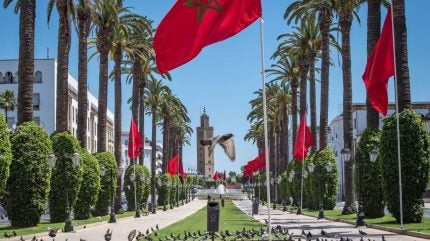

Morocco saw an annual increase in foreign direct investment (FDI) during the first quarter of 2020, after a decline in investment levels during 2019.
According to data from Morocco’s Office des Changes, net FDI inflows for the first quarter of 2020 totalled $515m (Dh4.82bn), compared with $430m in the same quarter of 2019.

Discover B2B Marketing That Performs
Combine business intelligence and editorial excellence to reach engaged professionals across 36 leading media platforms.
This came before the Covid-19 pandemic led to lockdowns and business disruption across the world, which the UN Conference on Trade and Development (UNCTAD) expects will cause global FDI volumes to fall by as much as 40% in 2020.
With FDI inflows dropping sharply in 2019, Morocco will hope the first-quarter figures are a positive omen rather than an aberration.
Morocco shows strength before pandemic
According to data from UNCTAD, net FDI inflows to Morocco decreased by 55% to $1.6bn in 2019 from $3.6bn the previous year. Just 21% of total FDI flows came from reinvested earnings.
Africa saw an overall drop in FDI flows of 10% during the year. Nearly all countries in the continent saw declines, with Egypt a notable exception, but the drop in Morocco’s inflows was greater than that in other diversified, non-commodity-reliant economies such as Ethiopia and South Africa.

US Tariffs are shifting - will you react or anticipate?
Don’t let policy changes catch you off guard. Stay proactive with real-time data and expert analysis.
By GlobalDataFDI in Morocco was significantly boosted in 2019 by Vnesheconombank, a Russian state-owned corporation, which announced a $2.2bn investment to build an oil refinery in the north of the country.
In contrast to inflows, Morocco had the second-highest outflows of any African country in 2019, with its total of $1bn only bettered by South Africa. This total was an increase of 32.1% compared with 2018.
Morocco has seen steady growth in both outbound and inbound FDI stock investments between 2000 and 2019, with the former totalling $66.5bn and the latter $6.4bn by the end of that period.
FDI and the Industrial Acceleration Plan
Attracting more FDI to Morocco was a major part of the country’s Industrial Acceleration Plan 2014–2020. Headline targets included the creation of 500,000 jobs, half of which were due to come directly from FDI, and a significant improvement to the country’s infrastructure.
French companies have historically been the biggest contributors of FDI to Morocco, due to economic links forged during their colonial past. Indeed, France provided by far the most FDI of any country to Morocco each year between 2007 and 2017.
This trend was broken in 2018 when Ireland became the North African country’s biggest provider of FDI, with $1.06bn compared with France’s $880m. This surge came about because of the acquisition of Moroccan insurance firm Saham by an Ireland-based asset fund that is part of South African financial services group Sanlam.
This acquisition meant insurance was the sector to see most FDI in Morocco in 2018, according to the latest data available from Morocco’s Office des Changes, followed closely by manufacturing and real estate.



